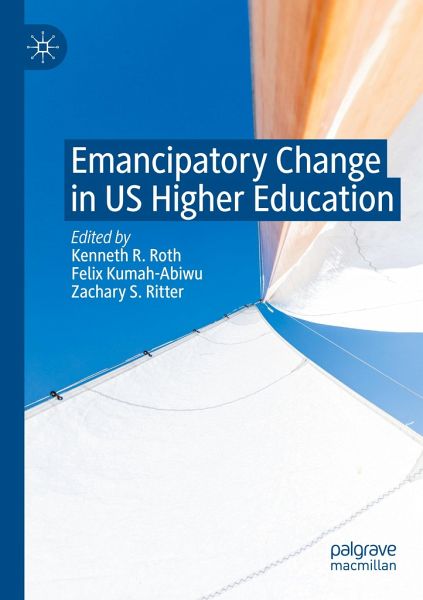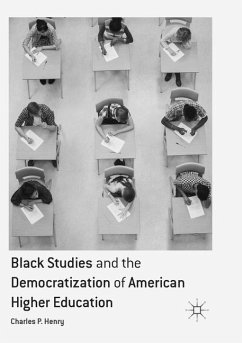
Emancipatory Change in US Higher Education
Versandkostenfrei!
Versandfertig in 6-10 Tagen
121,99 €
inkl. MwSt.

PAYBACK Punkte
61 °P sammeln!
This edited volume explores and deconstructs the possibilities of higher education beyond its initial purpose. The book contextualizes and argues for a more robust interrogation of persistent patterns of campus inequality driven by rapid demographic change, reduced public spending in higher education, and an increasingly polarized political landscape. It offers contemporary views and critiques ideas and practices such as micro-aggressions, implicit and explicit bias, and their consequences in reifying racial and gender-based inequalities on members of nondominant groups. The book also highligh...
This edited volume explores and deconstructs the possibilities of higher education beyond its initial purpose. The book contextualizes and argues for a more robust interrogation of persistent patterns of campus inequality driven by rapid demographic change, reduced public spending in higher education, and an increasingly polarized political landscape. It offers contemporary views and critiques ideas and practices such as micro-aggressions, implicit and explicit bias, and their consequences in reifying racial and gender-based inequalities on members of nondominant groups. The book also highlights coping mechanisms and resistance strategies that have enabled members of nondominant groups to contest primarily racial- and gender- based inequity. In doing so, it identifies new ways higher education can do what it professes to do better, in all ways, from providing real benefit to students and communities, while also setting a bar for society to more effectively realize its stated purpose and creed.














